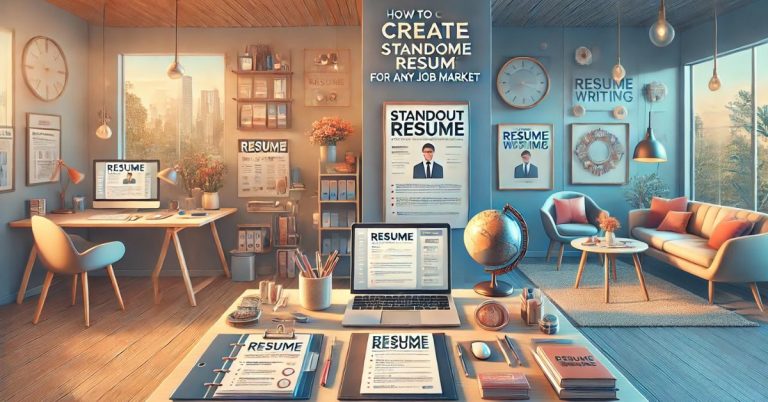This article provides essential interview tips to help you succeed in your job search. Following these practical strategies will enhance your confidence and performance during interviews.
The goal is to equip you with actionable advice to make a strong impression on potential employers. Read on to discover how to ace your following interview and secure the job you want.
Understanding Job Details
Grasp the essentials of the job description to prepare for discussions effectively. It highlights what the employer values most.
Tailoring Your Responses
Examine the job description to determine what the employer prioritizes. Align your skills and experience with these priorities.
This alignment demonstrates your suitability for the role. It’s about matching their needs with your capabilities.
Matching Skills and Qualifications
Identify the core skills and qualifications the job requires. Match these with your own experiences and strengths.
Highlighting these matches proves your competence. It reassures employers that you understand the role’s requirements.
Researching the Employer
Learn about the employer to enhance your discussions. Understanding their values and goals prepares you for deeper engagement.
Understanding Company Culture
Understanding the company’s culture helps you interact more effectively. Knowing their mission and recent activities informs your approach.
This knowledge demonstrates your interest and preparation. It shows you care about more than just the job itself.
Aligning with the Company
Researching the company helps you tailor your discussions to their values. It enables you to connect your skills with their goals.
This approach shows you’re not just interested but invested. It highlights your proactive effort to fit into their culture.
Getting Ready to Respond
Prepare to answer common questions effectively. This sets a positive tone right from the start.
Techniques for Common Questions
When asked to describe yourself, focus on your professional journey and how it aligns with the job. For questions about weaknesses, choose a real but minor flaw and show how you’re improving it.
Use examples that relate directly to the job’s demands. Always connect your answers back to why you are suitable for the position.
This ensures your responses are relevant and impactful. Practice these techniques to come across as thoughtful and well-prepared.
Using the STAR Method
Start by setting the context with the Situation. Next, describe the Task you were responsible for. Then, explain the Action you took. Conclude with the Result of your actions.
This method helps you craft answers that are both compelling and easy to follow. It turns simple responses into persuasive stories.
Questions for the Employer
Prepare questions that show you’ve done your homework and are truly interested. This will enhance your credibility and show your enthusiasm for the role.
Importance of Insightful Questions
Asking insightful questions demonstrates your understanding of the role and the company. It shows you are thinking about how you can contribute and grow with the employer.
This proactive approach is often appreciated and can set you apart. These questions also help you determine if the company is the right fit for you.
Examples of Strong Questions
Before listing questions, understand that the right queries can give you deeper insights into the company and the role. Here are some to consider:
- Can you describe the team I’ll be working with?
- What are the immediate challenges of the role need to be addressed in the first three months?
- How does this position contribute to the company’s goals and objectives?
- What are the company’s plans for growth and development over the next few years?
- How is performance typically evaluated here?
Dressing for Success
Choosing the proper attire is crucial for making an excellent first impression. It reflects your professionalism and attention to detail.
Choosing the Right Attire
Before selecting your outfit, consider the company’s culture and the nature of the position:
- For corporate settings, opt for a suit or professional dress.
- In creative fields, business casual can often be appropriate.
- Ensure your clothing is neat, clean, and well-fitted to show meticulousness.
- Choose muted colors and minimal accessories to maintain a professional look.
- Footwear should also be professional and polished.
Impact of Proper Attire on Confidence
Wearing the right clothes boosts your self-confidence and makes you feel more prepared. Proper attire aligns with the expected norms of the professional setting, reinforcing your suitability for the role.
It also affects how others perceive you, often positively influencing their first impression. Feeling good about your appearance can enhance your performance, allowing you to focus on your responses.
Additionally, appropriate attire prevents distractions, both for you and the interviewer. Overall, it contributes significantly to the success of your professional interactions.
Mastering Body Language
Body language speaks volumes before you even say a word. It’s a powerful aspect of your presentation.
Impact of Non-verbal Communication
Your non-verbal cues can significantly impact how your communication is received. Positive body language conveys confidence and interest in the discussion.
Negative or closed body language, like crossed arms or lack of eye contact, might suggest disinterest or discomfort. Maintaining open and engaging body language helps establish a connection.
It also makes the interaction more pleasant and productive. Overall, effective non-verbal communication supports and enhances your verbal messages.
Maintaining Positive Body Language
Good body language supports the impression you wish to convey:
- Maintain good posture to project confidence.
- Keep eye contact to show engagement and sincerity.
- Use gestures naturally to emphasize points, but avoid overdoing it.
- Smile genuinely to convey friendliness and approachability.
- Position your body to face the speaker, showing attentiveness and respect.
Mock Interviews
Practicing through mock setups is an effective way to prepare for professional discussions. It helps you refine your responses and improve your delivery.
Importance of Mock Practices
Mock setups are critical for several reasons:
- They help you practice responding to typical questions.
- You can experiment with different responses to see what works best.
- They allow you to adjust your body language in a controlled environment.
Using Feedback to Improve
Constructive feedback is invaluable for personal improvement:
- Act on feedback to refine both the content and delivery of your responses.
- Identify patterns or habits that could be adjusted for better impact.
- Use positive feedback to reinforce effective behaviors and responses.
- Continuously seek feedback to keep improving over time.
Interview Day Preparation
The day you meet with potential employers is crucial. Preparation can significantly impact the outcome.
Interview Day Checklist
Before you head out, ensure you have everything organized to present your best self:
- Bring copies of your resume, a list of references, and any necessary documents.
- Manage stress by practicing deep breathing or meditation techniques before leaving.
- Consider potential delays in planning your route and departure time to arrive 10-15 minutes early.
Timing and Composure Tips
Arriving on time and maintaining composure are key:
- Double-check the interview time and location the night before.
- Use traffic apps to estimate travel time realistically.
- Practice calming techniques en route, like listening to soothing music or an inspiring podcast.
- Maintain a positive mindset by visualizing a successful conversation.
Post-Interaction Follow-Up
Following up after your discussion can leave a lasting positive impression. It shows professionalism and interest.
Thank You Email Guidelines
Send a thank-you email within 24 hours:
- Express appreciation for the opportunity and the time shared.
- Mention a specific topic or moment from the impactful conversation.
- Reaffirm your interest in the role and how you can add value.
- Keep the tone professional and concise.
Maintaining Communication
Proper follow-up is essential for keeping communication lines open:
- Send your initial follow-up email within one week.
- If you haven’t heard back, a polite reminder two weeks later is acceptable.
- Respect the process by not overwhelming the contact with frequent messages.
- Express continued interest and enthusiasm for the role subtly and professionally.
Wrapping Up Your Top Interview Tips to Ace Your Job Search
Top Interview Tips to Ace Your Job Search Optimize your job search with these essential tips. Preparation, punctuality, and follow-up are the pillars of a successful interaction.
Customize your approach to show genuine interest and alignment with the company’s goals. These strategies enhance your presentation and boost your confidence, making you a memorable candidate.
Read in another language
- Español: Consejos principales para entrevistas para destacarte en tu búsqueda de trabajo
- Bahasa Indonesia: Tips Wawancara Teratas untuk Sukses dalam Mencari Pekerjaan
- Bahasa Melayu: Tip Temuduga Terbaik untuk Berjaya dalam Mencari Kerja
- Čeština: Nejlepší tipy pro pohovor, abyste uspěli ve svém hledání práce
- Dansk: Topinterviewtips til at mestre din jobsøgning
- Deutsch: Top Interview Tipps, um Ihre Jobsuche zu meistern
- Eesti: Ülimalt olulised intervjuu nipid, mis aitavad sul tööotsingu edukalt lõpule viia
- Français: Conseils Top pour Réussir Votre Recherche d’Emploi
- Hrvatski: Najbolji savjeti za intervju kako biste uspješno pronašli posao
- Italiano: I suggerimenti principali per un colloquio vincente durante la ricerca di lavoro
- Latviešu: Augstākie intervijas padomi, lai labi nokārtotu darba meklēšanu
- Lietuvių: Viršūniniai Interviu Patarimai, Kaip Sekmingai Išspręsti Darbo Ieškojimo Klaustukus
- Magyar: A legjobb interjútippjeink az álláskeresés sikeréhez
- Nederlands: Top Interviewtips om je sollicitatie tot een succes te maken
- Norsk: Topp Intervjutips for å lykkes i jobbsøket ditt
- Polski: Najlepsze wskazówki do udanego rozmowy kwalifikacyjnej i skutecznego poszukiwania pracy
- Português: Dicas principais para entrevistas para ter sucesso em sua busca de emprego
- Română: Sfaturi de top pentru interviuri pentru a-ți îmbunătăți căutarea de joburi
- Slovenčina: Tipy na pohovor, ako sa zářiť pri hľadaní práce
- Suomi: Parhaat haastatteluvinkit työpaikan saamiseksi
- Svenska: Toppintervjutips för att lyckas i din jobbsökning
- Tiếng Việt: Mẹo Phỏng Vấn Top để Thăng Tiến trong Việc Tìm Việc
- Türkçe: İş Aramanızda Başarılı Olmanın İpuçları
- Ελληνικά: Κορυφαίες συμβουλές για συνέντευξη που θα βοηθήσουν την αναζήτηση εργασίας σας
- български: Най-добрите съвети за интервю, които ще ви помогнат да се отличите в търсенето на работа
- Русский: Лучшие советы по собеседованиям, чтобы успешно пройти поиск работы
- עברית: עצות ראשונות לראיון כדי להצליח בחיפוש אחר עבודה
- اردو: آپ کے نوکری تلاش میں کامیابی کے لئے ٹاپ انٹرویو ٹپس
- العربية: نصائح مقابلة العمل الأفضل لنجاح بحثك عن وظيفة
- فارسی: راهنماییهای برتر مصاحبه برای موفقیت در جستجوی شغلی خود
- हिन्दी: नौकरी खोज को बेहतर बनाने के लिए शीर्ष साक्षात्कार युक्तियाँ
- ภาษาไทย: เคล็ดลับการสัมภาษณ์สุดยอดเพื่อประสบความสำเร็จในการค้นหางาน
- 日本語: 就職活動で成功するためのトップインタビューアドバイス
- 简体中文: 顶尖面试技巧,助您成功找到理想工作
- 繁體中文: 掌握面試技巧,成功找到理想工作
- 한국어: 취업 검색에서 성공하기 위한 최고의 면접 팁




